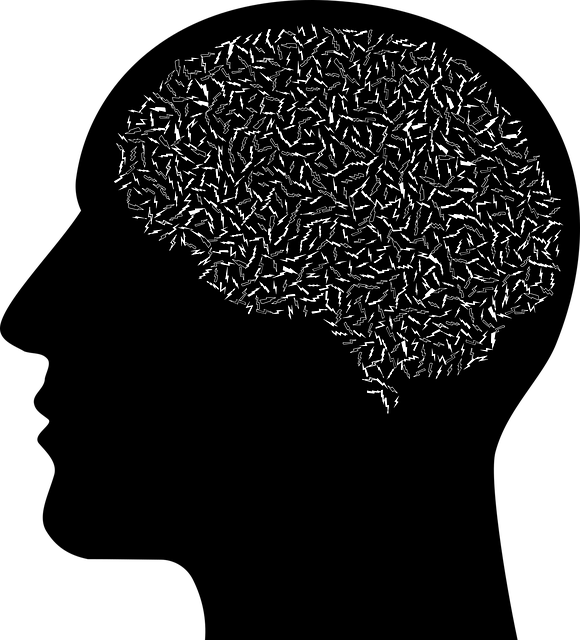Wheat Ridge Codependency Therapy specializes in addressing unhealthy familial patterns and promoting emotional well-being through individual and group sessions. By recognizing codependent behaviors like difficulty setting boundaries and seeking approval, clients gain personal growth and enhanced coping strategies. Cultural sensitivity ensures tailored techniques for diverse backgrounds. Effective mental wellness coaching in Wheat Ridge starts with comprehensive assessments, incorporates evidence-based techniques, and fosters open dialogue in a safe space. Programs aim to empower participants with resilience and overall mental well-being through expert guidance and holistic approaches, supported by community activities, support groups, and digital platforms like the Mental Wellness Podcast Series.
Mental wellness coaching programs are gaining traction as effective tools for personal growth. This article explores the development of such programs, focusing on the powerful Wheat Ridge Model, a therapeutic approach that targets codependency. We’ll delve into understanding this model, its significance in mental health coaching, and provide practical strategies for designing and implementing successful coaching sessions. By examining these key aspects, we aim to empower individuals seeking personal transformation through evidence-based practices like Wheat Ridge Codependency Therapy.
- Understanding Codependency: Unraveling the Wheat Ridge Model
- Designing Effective Mental Wellness Coaching Programs
- Implementation and Support: Strategies for Success in Therapy
Understanding Codependency: Unraveling the Wheat Ridge Model

Understanding Codependency delves into a complex psychological dynamic where individuals become overly dependent on others for validation and emotional support. The Wheat Ridge Model, a pioneering approach in Codependency Therapy, emphasizes that this behavior often stems from early life experiences, particularly within familial systems. By identifying unhealthy patterns of interaction, the model aims to promote emotional well-being through individual and group therapy sessions.
The process involves recognizing codependent traits, such as difficulty setting boundaries, a need for constant approval, and an inability to prioritize self-care. Wheat Ridge Codependency Therapy encourages clients to explore these issues within a safe, supportive environment, fostering personal growth and enhanced coping mechanisms. Moreover, integrating Cultural Sensitivity in Mental Healthcare Practice ensures that the therapy aligns with the client’s cultural background, making it more accessible and effective, and sometimes requires tailoring Emotional Well-being Promotion Techniques to accommodate diverse needs.
Designing Effective Mental Wellness Coaching Programs

Effective mental wellness coaching programs are meticulously designed to address a wide range of individual needs and challenges. A successful program begins with a thorough assessment process that identifies specific areas where individuals are seeking support, such as depression prevention or codependency therapy in Wheat Ridge. This foundational step ensures coaches can tailor their approach, offering personalized strategies and interventions.
The development process further involves integrating evidence-based techniques into the coaching framework. Mental health awareness is at the core of these programs, promoting open dialogue and fostering an environment where individuals feel safe to explore their emotions. By combining expert guidance with a holistic perspective, mental wellness coaching programs development aims to empower participants with coping mechanisms that enhance resilience and overall well-being.
Implementation and Support: Strategies for Success in Therapy

Implementing mental wellness coaching programs requires strategic planning and support to ensure success. One effective approach is to integrate Wheat Ridge Codependency Therapy techniques, which have proven beneficial for individuals dealing with codependency issues. This therapy focuses on fostering self-awareness, setting healthy boundaries, and promoting personal growth, making it a valuable tool within coaching frameworks. By incorporating these strategies, coaches can create a safe and supportive environment, enabling clients to explore their thoughts and emotions without judgment.
Additionally, building a strong support system is crucial for the long-term success of these programs. This includes not only providing one-on-one coaching but also encouraging clients to engage in community activities, join support groups, or participate in public awareness campaigns development related to mental health. Trauma support services can further enhance the effectiveness of coaching by addressing any underlying traumatic experiences that may be impacting an individual’s wellness journey. Moreover, leveraging digital platforms through Mental Wellness Podcast Series Production can offer accessible resources and reach a broader audience, thereby increasing public awareness and fostering a more inclusive approach to mental wellness.
Mental wellness coaching programs, informed by models like the Wheat Ridge Codependency Therapy, offer a promising approach to enhancing individuals’ mental health and well-being. By understanding codependency and designing effective coaching strategies, therapists can provide valuable support. Implementing these programs requires careful planning and an adaptive mindset, ensuring success in therapy and fostering positive outcomes for clients. This holistic development process holds the key to revolutionizing mental wellness care.














